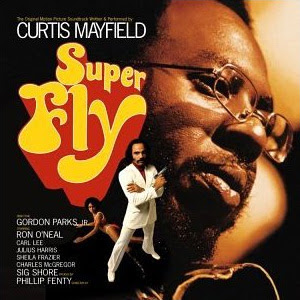I was inspired by a podcast called The 500 hosted by Los Angeles-based comedian Josh Adam Meyers. His goal, and mine, is to explore Rolling Stone Magazine's 2012 edition of The 500 Greatest Albums of All Time.
Album: #176
Album Title: Rocks
Artist: AerosmithGenre: Hard Rock, Heavy MetalRecorded: Wherehouse, Waltham, Mass. and Record Plant (New York City, N.Y.)
Released: May, 1976My age at release: 10
How familiar was I with it before this week: VeryIs it on the 2020 list? Yes, at #366, dropping 190 spots
Song I am putting on my Spotify Playlist: Back In The SaddleRocks was the second record from Boston-based, hard rock band Aerosmith to appear on The 500 list. In January, 2024, my appreciation for the group was made evident in a post about their third record, Toys In The Attic, which also made the list. Most of my high school chums were devotees of the quintet, which comprised Steven Tyler (vocals), Tom Hamilton (bass), Joey Kramer (drums), and guitarists Joe Perry and Brad Whitford.
 |
| Aerosmith (1978) (l-r) Tyler, Hamilton, Perry, Whitford and Kramer |
Both records were in regular rotation at house parties I attended, as was their Greatest Hits collection, released in 1980. Enjoying critical and commercial success while selling out arenas across North America, it seemed that "The Bad Boys of Boston" were riding high on a wave of good fortune that would carry them comfortably through the eighties. However, behind the scenes, things were falling apart. Guitarist Perry summed it up well in his 2014 autobiography and in many interviews, saying; "Originally, we were musicians who dabbled in drugs. By the early ‘80s, we were drug addicts who dabbled in music".
.jpg)
 |
| Rock In A Hard Place album cover (1982). |
In retrospect, we could have been kinder and understood that the five musicians were struggling with addiction. However, we were, like many teenagers, more interested in making each other laugh than concerning ourselves with the personal problems of other people. My buddy, Paul Dawson, and I would try to outdo each other by singing parodies of their lyrics and creating satirical titles for classic Aerosmith songs whenever they entered our purview.
- Back In The Saddle became "Back On The Bottle",
- Draw The Line was modified to "Draw The Line, So I Can Snort It",
- Walk This Way featured us pantomiming a member stumbling drunk and falling flat on his face.
Paul was far better at these ridiculous bits of satirical improv than I, often reducing me to tears with his comedy chops. His clever word play on our shared digital messenger thread still makes me chuckle. |
My favourite photo of Paul from the
early 80s. He always found (and still finds)
the comedy in everything. |
Fortunately, there was a glorious third act waiting for Aerosmith when they became sober in the mid-eighties. They released an impressive string of multi-platinum-selling albums and chart-topping hit singles that began with Permanent Vacation in 1987. Perry and Whitford had returned to the line-up and the band employed songwriters with "pop music" sensibilities. It was the right decision for them, as they amassed a new generation of fans. Their pop-metal and syrupy ballad sound was not for me, though.
 |
| Album cover for Permanent Vacation (1987). |
Even Saturday Night Live took the mickey out of the band when the comedy ensemble satirized Aerosmith’s mid-’90s hits in a sketch featuring Adam Sandler as Steven Tyler and Jay Mohr as Joe Perry. In the skit, presented as a faux-commercial for a 1990-1994 Greatest Hits Record, Sandler poked fun at the familiar and formulaic sound of the songs Cryin', Crazy and Amazing -- eventually, pitching "new" songs including the ridiculously titled, Crazy Amazing Cryin-Amazacrazy. The video can be seen here..jpg) |
| Sandler as Tyler and Mohr as Perry in the 1994 SNL sketch. |
In May, 2023, the group announced a Farewell Tour. However, after 74-year-old Tyler suffered vocal chord damage in September, the shows were postponed for a year. In August, 2024, it was announced that all shows would be cancelled and the band retired. It seems that Father Time had caught up with the leather-lunged Tyler (aka The Demon of Screamin'), and he was unable to recover from his throat injury.
 |
| Steven Tyler in 2023. |
I regret not seeing Aerosmith perform live despite many opportunities. In 1990, a group of friends invited me to join them at a concert at Toronto's Skydome and support the band’s tenth record, Pump. Looking back, I am surprised I declined because I didn't mind the album and had it on CD for years. Still, it never measured up to those early records, including this week's album, Rocks.




.jpg)

.jpg)
.jpg)

.jpg)







.jpg)
.jpg)












